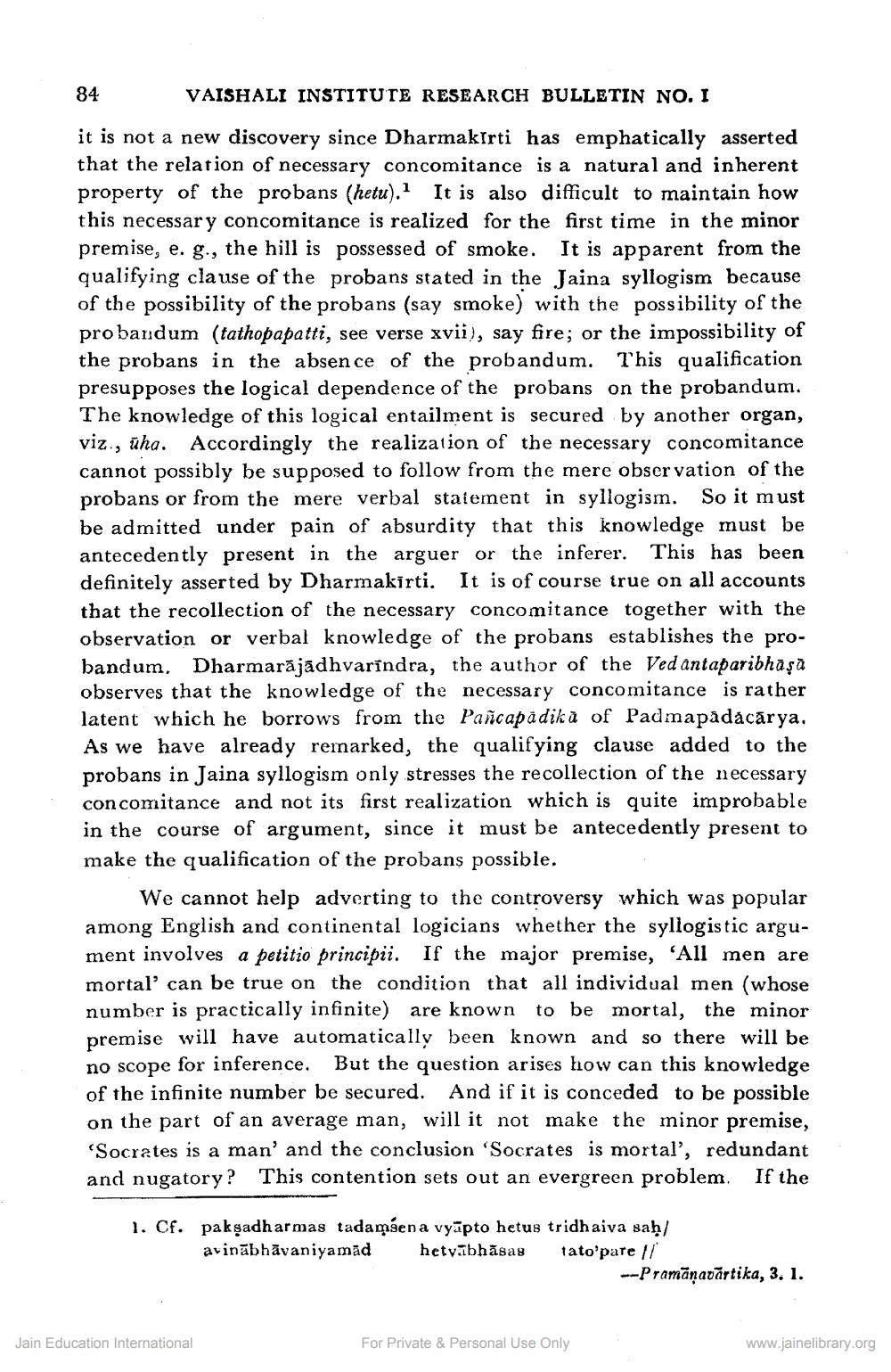________________
84
VAISHALI INSTITUTE RESEARCH BULLETIN NO. I
it is not a new discovery since Dharmakirti has emphatically asserted that the relation of necessary concomitance is a natural and inherent property of the probans (hetu). It is also difficult to maintain how this necessary concomitance is realized for the first time in the minor premise, e. g., the hill is possessed of smoke. It is apparent from the qualifying clause of the probans stated in the Taina syllogism of the possibility of the probans (say smoke) with the possibility of the probandum (tathopapatti, see verse xvii), say fire; or the impossibility of the probans in the absence of the probandum. This qualification presupposes the logical dependence of the probans on the probandum. The knowledge of this logical entailment is secured by another organ, viz., ūha. Accordingly the realization of the necessary concomitance cannot possibly be supposed to follow from the mere observation of the probans or from the mere verbal statement in syllogism. So it must be admitted under pain of absurdity that this knowledge must be antecedently present in the arguer or the inferer. This has been definitely asserted by Dharmakirti. It is of course true on all accounts that the recollection of the necessary concomitance together with the observation or verbal knowledge of the probans establishes the probandum, Dharmarajadhvarindra, the author of the Vedantaparibhasa observes that the knowledge of the necessary concomitance is rather latent which he borrows from the Pancapädikà of Padmapadácārya, As we have already rernarked, the qualifying clause added to the probans in Jaina syllogism only stresses the recollection of the necessary concomitance and not its first realization which is quite improbable in the course of argument, since it must be antecedently present to make the qualification of the probans possible.
We cannot help adverting to the controversy which was popular among English and continental logicians whether the syllogistic argument involves a petitio principii. If the major premise, 'All men are mortal' can be true on the condition that all individual men (whose number is practically infinite) are known to be mortal, the minor premise will have automatically been known and so there will be no scope for inference. But the question arises how can this knowledge of the infinite number be secured. And if it is conceded to be possible on the part of an average man, will it not make the minor premise, "Socrates is a man' and the conclusion 'Socrates is mortal', redundant and nugatory? This contention sets out an evergreen problem. If the
1. Cf. pakşadharmas tadamsen a vyāpto hetus tridh aiva sah/ avinābhāvaniyamăd hetvābhāsas tato'pare //
--Pramāņavārtika, 3. 1.
Jain Education International
For Private & Personal Use Only
www.jainelibrary.org




